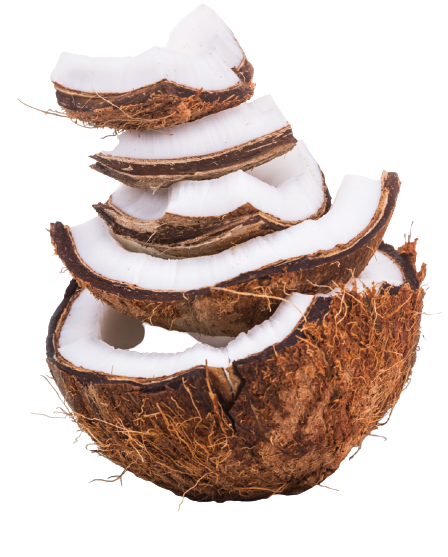Coconut oil benefits and uses go beyond what most people realize.
Its unique combination of fatty acids can have profound positive effects.
Research has finally uncovered the secrets to this amazing fruit; namely fats called medium-chain fatty acids (MCFAs), these specific fats include Caprylic, Lauric and Capric acid. Here are the top benefits of coconut oil that have been experimentally confirmed in human studies: coconut oil can increase your energy expediture, helping you burn more fat!
Obesity is currently one of the biggest health problems in the world. While some people think obesity is only a matter of calories, others believe that the sources of those calories are critical too. It is a fact that different foods affect our bodies and hormones in different ways. In this regard, a calorie is NOT a calorie. The medium-chain triglycerides (MCTs) in coconut oil can increase energy expenditure compared to the same amount of calories from longer chain fats.
The Lauric acid present in coconut oil can kill bacteria, viruses and fungi, helping you stave of infections!
Almost 50% of the fatty acids in coconut oil is the 12-carbon Lauric Acid. When coconut oil is enzymatically digested, it also forms a monoglyceride called monolaurin. Both lauric acid and monolaurin can kill harmful pathogens like bacteria, viruses and fungi.
Studies on Polynesians and Bicolanos in the Philippines, as free-living populations that consume coconut oil, have shown that coconut oil does not negatively impact cardiovascular health and, in fact, may be beneficial against other indicators, such as atherosclerosis.
Given that coconut oil can reduce appetite and increase fat burning, it makes sense that it may also help you lose weight. Coconut oil appears to be especially effective in reducing abdominal fat, which lodges in the abdominal cavity and around organs. A study in 40 women with abdominal obesity, supplementing with 30 mL (1 ounce) of coconut oil per day led to a significant reduction in both BMI and waist circumference in a period of 12 weeks.
Source Violife fooods


